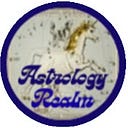Astrology Background: Tracing the Celestial Origins of an Ancient Art
This article may include affiliate links, which means that if you click on one and decide to purchase something, I may receive a small commission at no extra cost to you.
(Human directed ai content.
Introduction
Astrology, a practice that seeks to understand the connection between celestial phenomena and human life, has been an integral part of human culture for thousands of years. With origins dating back to ancient civilizations, astrology’s enduring influence on various societies is a testament to its significance and timeless appeal.
In this article, we will delve into the fascinating background of astrology, exploring its ancient roots, cultural manifestations, and its role in shaping human beliefs and understanding of the cosmos.
Ancient Beginnings
The roots of astrology can be traced back to ancient civilizations such as the Babylonians, Egyptians, and Greeks. The earliest evidence of astrological practices dates back to Babylonian times, around the 5th century BCE. The Babylonians observed the movements of celestial bodies, especially the planets and luminaries, and associated them with specific events and phenomena on Earth.
Get your FREE Astrology Reading! https://bit.ly/FreeReading-2024 (This is an affiliate link.)
Later, the ancient Egyptians developed their own form of astrology, primarily focused on their worship of the Sun and its cyclical patterns. The Egyptians linked their beliefs about the afterlife and the journey of the soul to the celestial movements of the Sun and stars.
Greek Influence and the Zodiac
The Greeks played a crucial role in shaping astrology as we know it today. The introduction of the zodiac, a band of constellations along the ecliptic, can be attributed to the Greeks. The term “zodiac” comes from the Greek word “zōidiakos,” meaning “circle of animals.” This division of the celestial sphere into twelve equal segments, each associated with a specific constellation, formed the foundation of the zodiac signs we recognize today.
Greek philosophers, including Plato and Aristotle, explored the connection between celestial bodies and human life. They believed that the positions of the planets and stars could influence human behavior and shape individual destinies.
Astrology Across Cultures
Astrology’s influence transcended the boundaries of ancient civilizations. In India, the practice of astrology, known as “Jyotish,” developed around the same time as Babylonian astrology. Jyotish placed great importance on the positions of the Moon and planets and their impact on human affairs, health, and relationships. To this day, astrology remains an integral part of Indian culture and is widely practiced.
Similarly, ancient Chinese astrology, also known as “Zi Wei Dou Shu,” emerged with a focus on the twelve animal signs, each representing a year in a twelve-year cycle. The Chinese zodiac is still popularly used today, especially during the celebration of the Chinese New Year.
Medieval and Renaissance Europe
During the medieval and Renaissance periods in Europe, astrology gained widespread popularity among scholars, theologians, and rulers. Astrological charts were used to make predictions about the future of kingdoms and individuals alike. It was believed that the positions of celestial bodies at the time of important events, such as coronations and battles, could foretell the outcomes.
Challenges and Modern Perspectives
With the rise of the scientific revolution in the 17th century, astrology faced increasing skepticism and criticism. The emergence of modern astronomy, coupled with the development of the scientific method, led to a shift away from the acceptance of astrological beliefs as scientific knowledge.
Despite the challenges, astrology remained popular among certain segments of society and continued to evolve. In the 20th and 21st centuries, astrology found a place in popular culture, with newspapers and magazines featuring daily horoscopes, and the rise of astrology apps and websites providing personalized readings.
Contemporary astrology often acknowledges its non-scientific status, with many practitioners emphasizing its psychological and spiritual aspects rather than making concrete predictions.
Get your FREE Astrology Reading! https://bit.ly/FreeReading-2024 (This is an affiliate link.)
Conclusion
Astrology’s background is steeped in rich history, stretching back to ancient civilizations and permeating various cultures worldwide. From the Babylonians’ observations to the Greeks’ contributions and beyond, astrology has evolved and adapted over the millennia. Today, while it may face challenges and skepticism, astrology continues to inspire curiosity, self-awareness, and a sense of connection to the cosmos.
Whether one approaches astrology with scientific scrutiny or personal fascination, its enduring allure as an ancient art of understanding the celestial and human realms remains an integral part of our cultural heritage.’
Read More…
LEGAL INFORMATION
Any links in this article, may be affiliate links. Using my links is free at no extra cost to you, and helps to support my channel. Information in
the articles is not business or investment advice, and these articles are created primarily for entertainment purpose. Thank you for your support!
